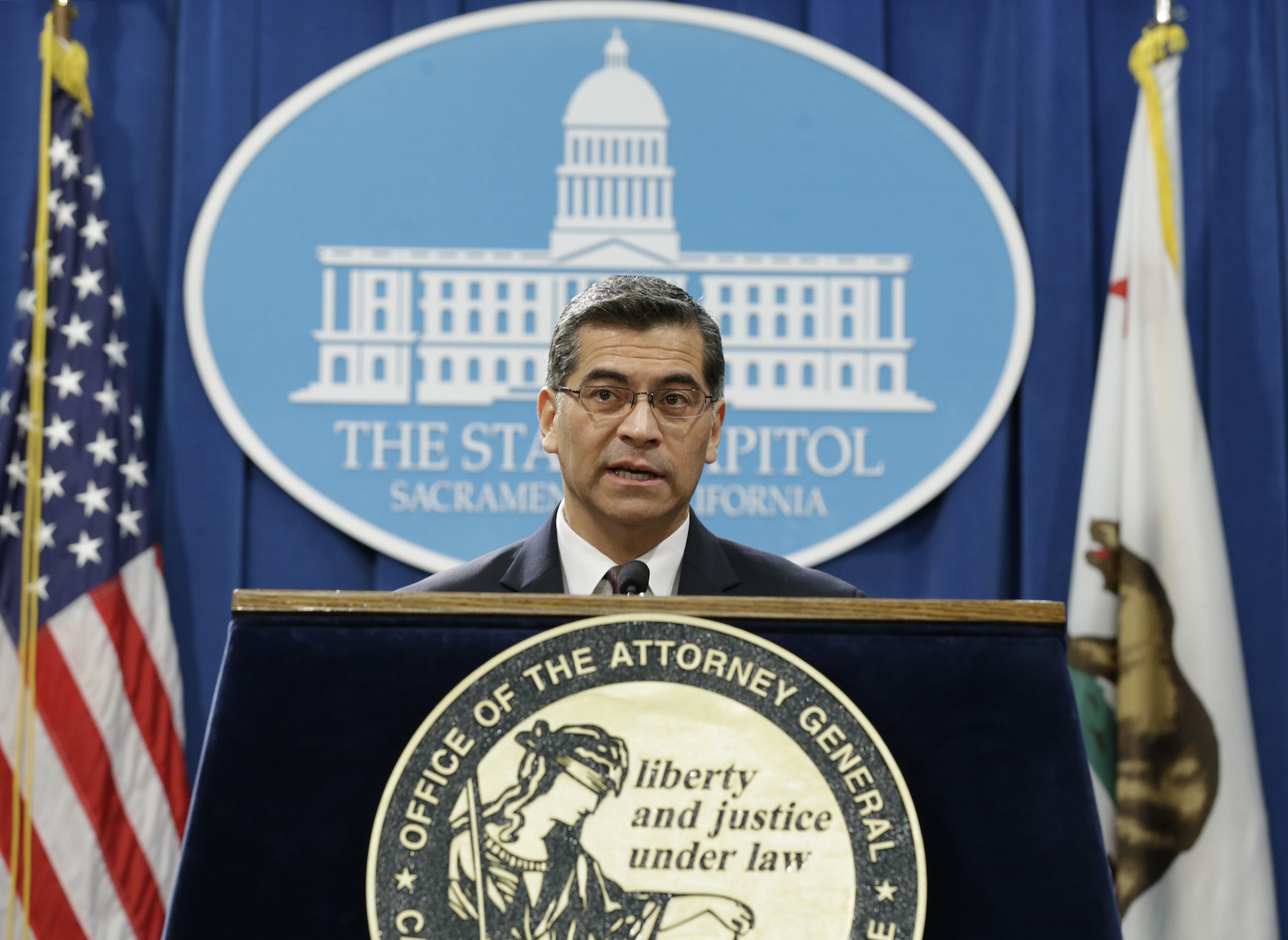California on Monday became the most recent state to join a legal challenge to President Donald Trump’s revised executive order restricting travel from six majority-Muslim countries.
Trump’s order is set to take effect March 16, unless a judge first grants a restraining order.
The revised ban blocks new visas from being issued to people from Iran, Syria, Somalia, Sudan, Libya, and Yemen, and suspends all refugee admissions for 120 days.
A legal brief filed by California argues that the state’s residents – including its more than 10 million immigrants and 150,000 international students – will be harmed by the new ban, according to the Los Angeles Times. The brief also alleged the state will suffer financial harm, as visitors from the Middle East spent $681 million in the state in 2015, generating $40.8 million in sales tax revenue.
“The Trump Administration may have changed the text of the now-discredited Muslim travel ban, but they didn’t change its unconstitutional intent and effect,” California’s attorney general Xavier Becerra told media on Monday.
"It's still an attack on people - women and children, professors and business colleagues, seniors and civic leaders - based on their religion and national origin."
Hawaii was the first to file a lawsuit last Wednesday, followed by Washington state - which had been the first state to challenge Trump's original ban in January. Washington's renewed lawsuit has been joined by Oregon, Minnesota, Maryland, New York, and California, and attorneys general in Massachusetts have also said they plan to join.
New York's amended complaint was also released to the public on Monday, alleging that its residents, universities, and businesses will suffer harm, as the state is home to more than 4.4 million foreign-born residents, including 13,000 from the six countries named in the revised ban.
Trump administration officials have defended both bans as necessary in preventing the entry of travelers from countries affected by terrorism, until more rigorous vetting procedures can be implemented.
Washington's challenge alleges that Trump's revised order is similar both in procedure and in intent as the previous ban, and on Monday filed a motion asking for last month's emergency halt on the original ban to be applied to the revised one.
Hawaii's lawsuit, which is separate from Washington's, also challenges the ban's constitutionality, and argues that it will harm the state's Muslim residents and foreign students, and damage its tourism-based economy.
On Monday, the federal government disputed Hawaii's claims as speculation, according to the Associated Press. A federal judge will hear arguments on Wednesday.

